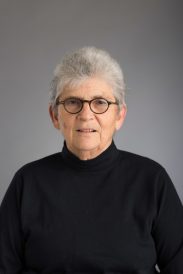
11/11/15 Esther Newton, Lecturer in Women’s Studies.
By Esther Newton
Special to Lesbian.com
My psychiatrist was a middle-aged Jewish man, and luckily for me, he was sympathetic, supportive, and caring. Haltingly, I told him that I hated Palo Alto High School; that I felt trapped between my rejecting mother, whom I loved, and my grandmother, whom I did not; that I missed my father and New York. How my wish to escape to boarding school after my sophomore year had been vetoed by my mother, who, despite our conflicts, did not want me to leave home. How during this, my junior year, we had fought incessantly.
All this took a couple of months of talking. Then one day, as semitropical gardens were blooming around the suburban Victorians and ranch houses, I blurted, “There’s something I have to tell you.” The doctor nodded, listening intently. Then I sat there. And twiddled my hair, looked at the floor. And sat there. Unable to open my mouth, unable to say the words that I had recently written in my journal, but never said aloud, even to myself, words that could never be taken back. This went on for three weeks.
Finally, I looked down at the floor and mumbled, “I think I might be a homosexual.” The doctor considered while he took this in. My heart beat frantically. It seemed I must be struck dead, that the stucco walls of his house would hate me, crush me. This was in the spring of 1957. The doctor said, “What’s so bad about that?”
If you are only as sick as your secrets, as they say in Alcoholics Anonymous, then telling that sweet doctor, and his acceptance, was a giant step toward health. I wish I could say that from then on I suffered no more than the usual ups and downs that young people endure. This is what one sees in gay youth fairly often today. But so many other voices, my own and those all around me, were telling me what ruin this would lead to, how I would be forever a weirdo, outcast, condemned to a life that would be even worse than my high school misery, and, above all, how I would never find anyone to love and love me back.
Like me, many Americans never recover fully from bullying and other torments of their adolescence. The damage is permanent, no matter how much success adulthood brings. Some years ago I dreamed I came upon a brown bear surrounded by a boisterous crowd of street people. I approached the bear obliquely from the back; it was sitting upright and motionless in a hole; only the back of its torso and head were visible. The people were shouting at it and throwing garbage. I realized that they meant in the end to kill it and were only tormenting it from the fun of destroying a robust, beautiful animal who was hopelessly outnumbered. I woke in terror and threw myself into my girlfriend’s arms. “It’s you, the bear,” she said. “But it’s only a dream.”
ESTHER NEWTON, one of the pioneers of gay and lesbian studies, is formerly Term Professor of Women’s Studies at the University of Michigan and Professor of Anthropology at Purchase College, State University of New York. She is the author of several books, including Margaret Mead Made Me Gay: Personal Essays, Public Ideas and Cherry Grove, Fire Island: Sixty Years in America’s First Gay and Lesbian Town, both also published by Duke University Press, as well as the groundbreaking Mother Camp: Female Impersonators in America.
Copyright © 2018 by Esther Newton. . This excerpt originally appeared in My Butch Career: A Memoir , published by Duke University Press. Reprinted here with permission.






